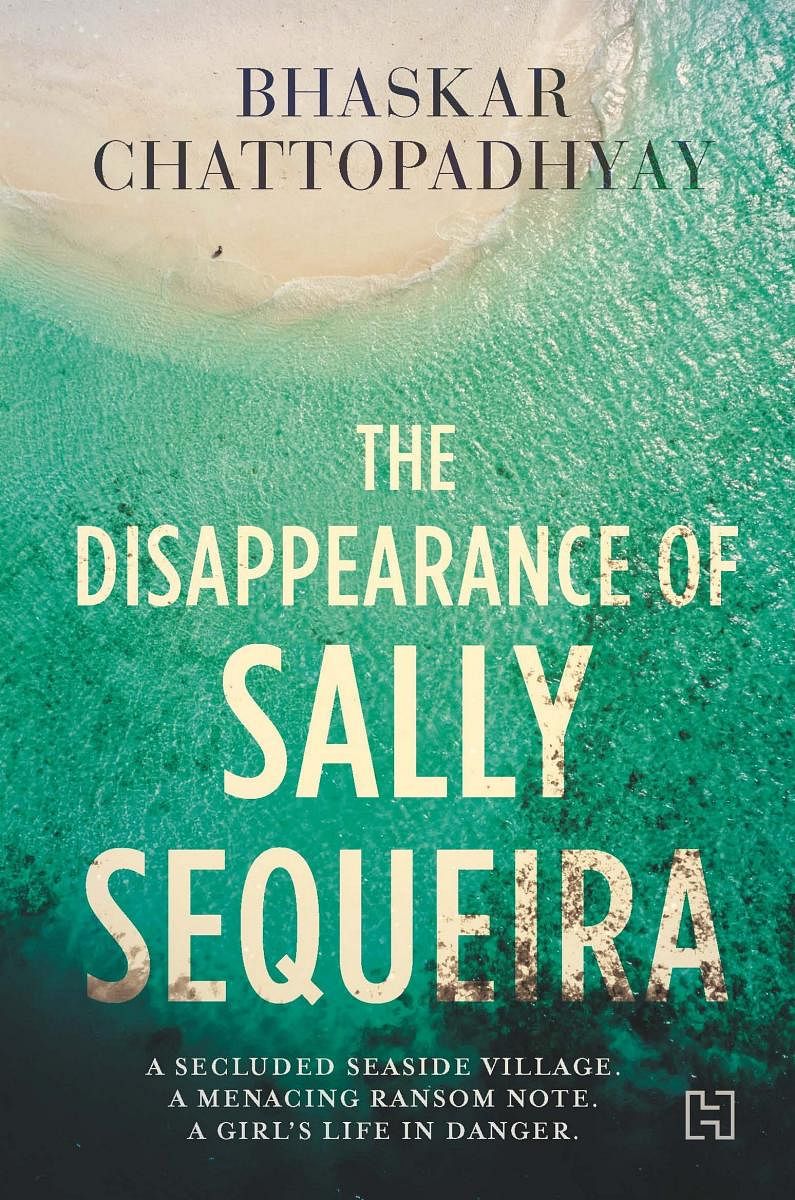
There is something cute about Bengalis writing detective stories. Or appearing in one. Apart from the most obvious standards set by Sherlock Holmes, these guys must come to terms with Satyajit Ray and his Feluda. Bhaskar Chattopadhyay has worked on some of Ray’s oeuvre through the media of translation and novelisation. He is out with his second detective novel, The Disappearance of Sally Sequeira, with Janardan Maity as the main detective and Prakash Ray as his friend and assistant. The novel makes for a light, rapid reading, usual for the genre.
Maity and Prakash come to a small village in Goa for a vacation and witness a crime the same night. While trying to understand a crime that was supposed to be committed but turns out to be a false alarm, they get to know of the disappearance of Sally Sequeira, an unusually reserved girl. The elders of the closely-knit community in the village rope the two men in to investigate. In the span of a few days, the two run into several cues, notice unusual things about everyone, and risk their own lives too. But, as always, all is well at the end when Maity explains it all, piece by piece, and chronologically, starting from the affairs that date back to several years. The character you do not suspect at all turns out to be the criminal, again, as always.
Readers given to the pleasures of whodunnit fiction are in for a regular dose of ups and downs, exciting twists, and intriguing observations that Maity makes about the people around him. Everybody is hiding something, but as it turns out, most of that is necessary for Maity to arrive at the conclusions on his own. The genius that he is, he does not let them down.
The cutest thing is that Maity does not have anything of the dark side that Sherlock and most of the characters inspired by him do.
He is a keen observer, but there is so much that is clean about his personality. Prakash says: “As I walked beside Maity, I couldn’t help but take a moment to admire him yet again. During our previous adventure in the forests of Nimdeora, I had got acquainted with his knowledge of Indian classical music. But little did I know that he had an interest in Western classical music as well. I knew he was a voracious reader and was deeply interested in a wide variety of subjects. Was there anything under the sun that the man didn’t know?” We get it: he is intelligent and his friend adores him.
Satyajit Ray’s model of this kind of writing was that, as long as it avoided violence and rape, and had enough unquestionable premises and facts, it worked. The readers learned something about how stuff works. That is true for all writing in this category. Chattopadhyay’s detective cannot play the piano. He fails miserably in his attempt to play the national anthem. But he is sensitive to the interpretations of Chopin by Arthur Rubenstein and by a character in the novel. The readers who don’t know anything about music will learn that it playing the piano involves the feet, too.
One learns quite a bit about the lighthouses from Chattopadhyay. The structure, its history and its function play a role in building the mystery up, working as a digression, and finally in resolving everything. Goa, the lighthouse and the sea constitute a good setting and recipe for a secret. The author manages to work well with these.
There is an idiotic inspector who conducts surprise raids with his siren on in the image of an arrogant cop, a foil to the main detective. While Inspector Rajan is upset that the villagers are praising Maity alone, Maity, the humble person, thanks him and asserts that the two have solved the case together. This detective is a balanced, well-adjusted human being. He is not a sneering atheist. He says, “I do not believe in God, but I believe in faith... Miracles do not happen because of a divine power. They happen because of ordinary men.” Like Feluda, he is likable, not just for the intelligent, deductive mind that he is, but also for the humble human being that we know him to be. Chattopadhyay knows how to play it safe.
But Bongs know how to disrupt things a bit, too. At the end of The Disappearance of Sally Sequeira, a character asks Prakash if he is related to Maity. Prakash replies in the negative. The other character is baffled about something. Prakash replies, “He’s my friend.”
One wonders if this is Chattopadhyay’s way of referring, or not referring, to something scandalous about the two men. Nothing in the story suggests that the two could be gay, but no author can escape the question of the relationship between the two associates, can he?
If another Maity novel is likely to be out, one does not expect the question to be handled extensively either. It is perhaps enough that such ties with the ancestors Sherlock and Feluda resurface here and there.